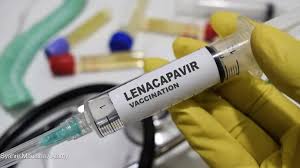In Uganda, kidney disease is on the rise, yet access to transplants remains limited. For those suffering from kidney failure, a transplant can offer a new chance at life but becoming a kidney donor is not easy.
Kidney donation in Uganda is still developing. Until recently, many Ugandans had to travel abroad often to India, Kenya, or South Africa to receive a kidney transplant. However, with recent medical advancements and training, Uganda’s hospitals are beginning to carry out these life-saving surgeries locally.
What It Takes to Donate a Kidney
To donate a kidney, one must be healthy and undergo a series of medical tests. These include blood tests, scans, and psychological evaluations to ensure the donor is both physically and emotionally prepared. Donation must be voluntary, and no money should be exchanged—selling organs is illegal.
Doctors must also confirm that the donor and recipient are a match to reduce the risk of rejection. Even when everything is approved, the surgery can be risky and expensive, costing millions of Ugandan shillings. Most people can live a healthy life with one kidney, but donors must continue to have regular medical check-ups after surgery.
Challenges Facing Uganda
One major challenge is awareness. Many people do not understand how kidney donation works or fear it might harm the donor permanently. Myths and stigma make it even harder to find willing donors. The cost of surgery and lack of insurance coverage also stop many patients from getting help.
Uganda’s health ministry is now working with international partners to train more surgeons and provide better transplant services within the country. Hospitals like Mulago National Referral Hospital have started performing transplants with success, but the demand remains much higher than the supply of available kidneys.
Stories of Hope
Despite the difficulties, there are stories of courage and generosity. In one case, a young man donated a kidney to save his mother’s life. “I knew she wouldn’t survive on dialysis forever. Donating was the right thing to do,” he said.
The Road Ahead
Health experts believe that with more education, public support, and better healthcare funding, kidney transplants in Uganda can become more accessible. The government is also considering creating a national organ donor registry, which would make it easier to match patients with potential donors in time.
Kidney donation is a personal sacrifice but it can mean the gift of life to someone else. As Uganda takes small steps toward improving transplant services, every act of donation brings hope to patients and their families.



